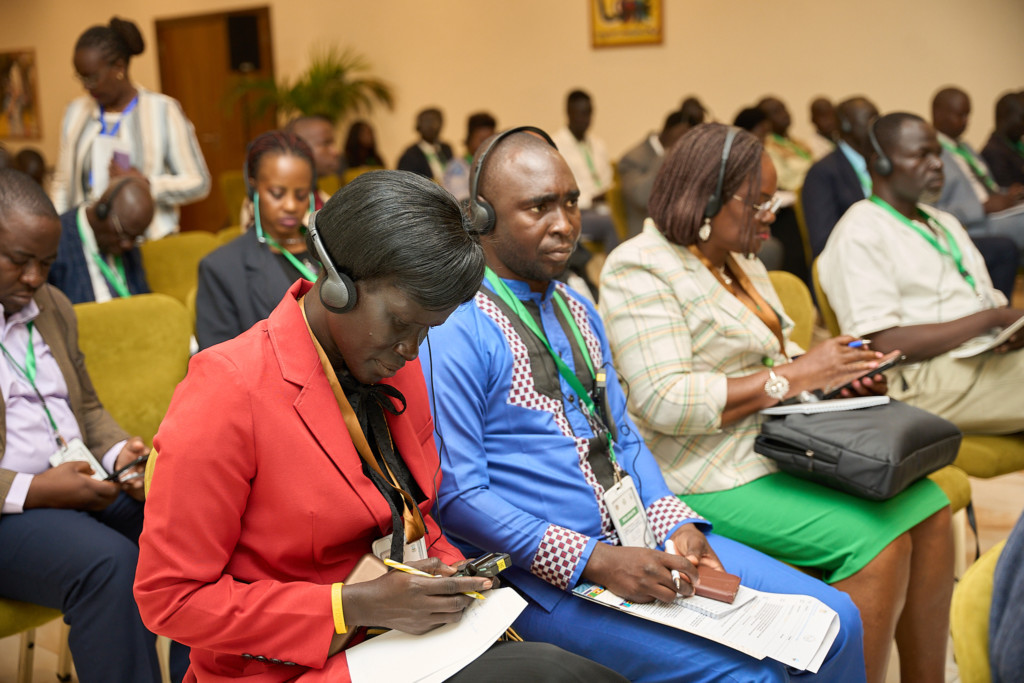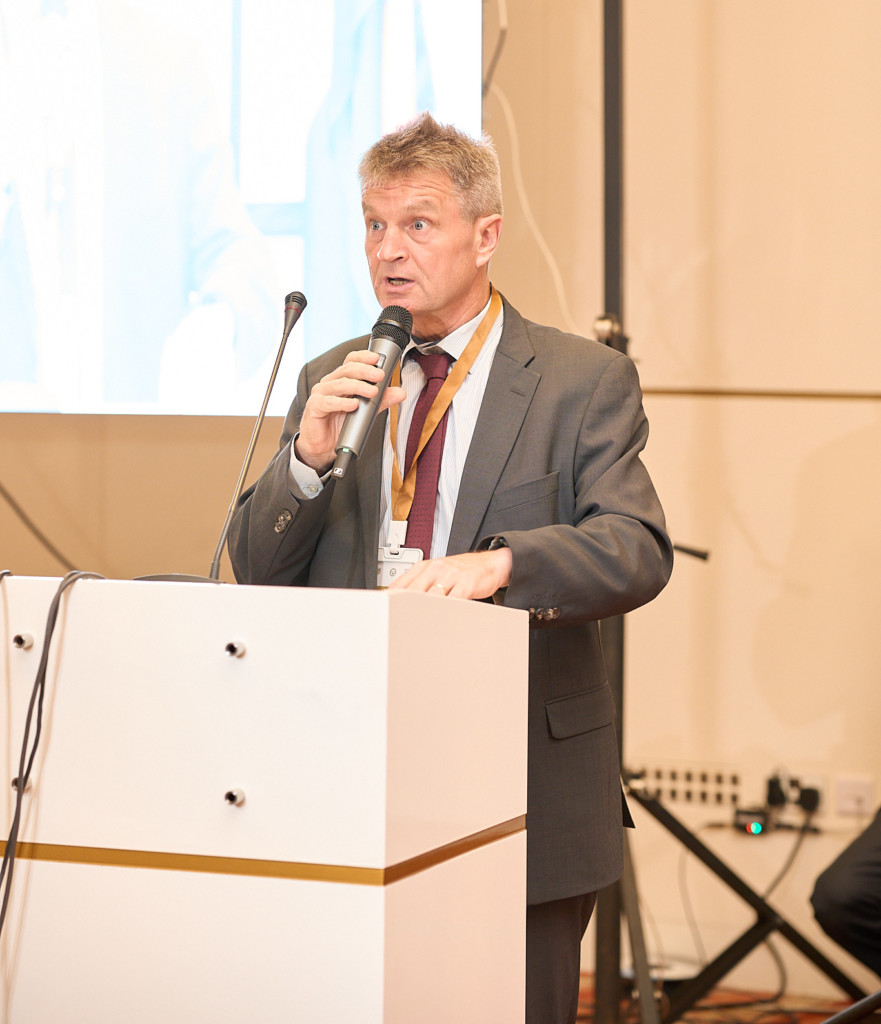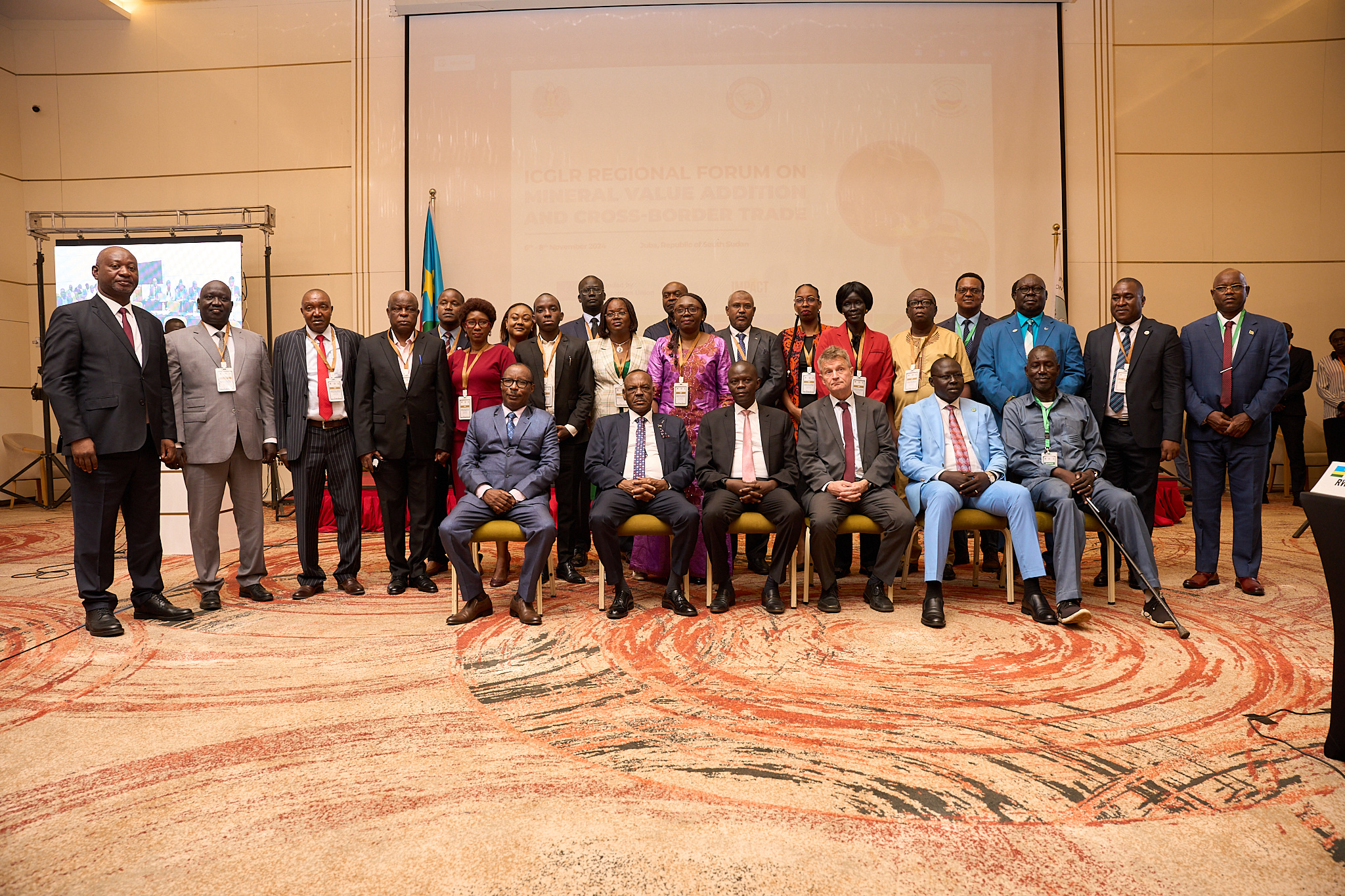In recent years, the push for “value addition” in mineral supply chains has gained momentum globally, and the Great Lakes Region of Africa is no exception. While various groups can interpret the term differently, value addition typically refers to activities that increase the economic value of minerals through processing, smelting, refining, and manufacturing.
This strategy generates higher profits and promotes economic growth and job creation within the mining sector.
In November 2024, the International Conference on the Great Lakes Region (ICGLR), co-funded by the European Union, hosted a crucial gathering in South Sudan, bringing together leaders, policymakers, and industry stakeholders to discuss value addition, sustainable mineral trade, and regional cooperation. The ICGLR Regional Mineral Forum on Mineral Value Addition explored how the region can leverage its natural resources for economic security.

What is Value Addition, and Why Does it Matter?
Value addition in the mineral sector is increasingly viewed as a pathway to sustainable development. Instead of exporting raw minerals, which yield limited revenue, countries are exploring methods to refine and manufacture mineral-based products domestically.
This shift not only boosts the economic value of exports but also stimulates local industries, fosters job creation, improves women’s access to financing, and strengthens the technical capacity within the mining sector.
For the Great Lakes region—home to rich mineral reserves and significant artisanal and small-scale mining (ASM) activities—value addition offers a pathway to leverage natural resources for broader socio-economic development.
Across the Great Lakes region, countries such as the Democratic Republic of Congo, Rwanda, and Uganda have already taken steps toward value addition, establishing smelters, refineries, and other mineral processing facilities. By situating these entities close to mineral-producing areas, countries are capitalizing on job creation opportunities while increasing tax revenue from the mining sector.
However, establishing these facilities requires extensive investment, skilled labor, and regulatory support—factors that are not always readily available in every country.
ICGLR’s Role in Promoting Regional Value Addition
The ICGLR, through its Regional Initiative Against the Illegal Exploitation of Natural Resources (RINR), plays a critical role in shaping policies for mineral governance. While the RINR does not specifically outline value addition, its overarching goal of responsible mineral governance aligns closely with the goals of beneficiation and local mineral processing.
Recognizing this, several ICGLR Member States have begun enacting policies and legislation to support domestic value-addition initiatives. These policies seek to not only enhance local industries but also combat challenges related to illegal mineral trade, which often undermines both economic growth and regional security.

During the 2024 ICGLR Regional Forum on Mineral Value Addition and Cross border trade held in Juba, Timo Olkkonen, the EU Ambassador to South Sudan, expressed his support for these efforts: “In the framework of our regional program on peace and security in the Great Lakes region, we have joined forces with the ICGLR and our implementing partner IMPACT to make tangible strides towards the improvement of mineral resources governance in the Great Lakes Region. And thus, I am pleased that this important regional forum is meeting to deliberate on all aspects of the proposed Mineral Value Addition Guidelines.”
Challenges and the Need for a Regional Approach
While value addition offers promising economic benefits, implementing it on a large scale presents substantial challenges. Countries in the Great Lakes region face hurdles such as limited infrastructure, high operational costs, and the need for skilled labor.
Competing on the global market requires consistent product quality, efficient logistics, and regulatory compliance—all of which necessitate significant investment. In this context, a regional approach to value addition becomes invaluable. By pooling resources and expertise, Member States can develop integrated industries that are competitive on a global scale.
A regional strategy would allow for targeted investments and reduce redundancy, where multiple countries attempt to develop the same infrastructure independently. Instead, by coordinating efforts, the region can establish mineral processing hubs that cater to multiple countries, enhancing economies of scale and fostering inter-country collaboration. The South Sudan forum thus served as a platform for leaders to discuss these issues and formulate a cohesive, harmonized approach to mineral beneficiation across the Great Lakes.
Unveiling New Regional Guidelines on Mineral Beneficiation and Cross-Border Trade
One of the major outcomes of the South Sudan meeting was the introduction of new Regional Guidelines on Mineral Beneficiation, Value Addition, and Cross-Border Trade. Co-funded by the European Union through the Peace and Security in the Great Lakes Region project, these guidelines serve as a roadmap for enhancing cooperation among Member States. They offer a framework for regulating mineral extraction, processing, and trade, with a strong focus on cross-border collaboration and standardized practices.
These guidelines emphasize the importance of formalizing the ASM sector, which remains a significant source of livelihood for communities in the region. By encouraging ASM formalization, the guidelines aim to promote responsible mining practices, reduce illegal exploitation, and increase the traceability of minerals—ensuring that both local communities and national economies benefit from the sector. The guidelines also advocate for sustainable environmental practices and community engagement, key to gaining public support and minimizing the social and environmental impacts of mining.
Maj. Gen. Martin Abucha,the South Sudan Minister of Mining, highlighted the importance of value addition: “We want to sell products, not raw material, to ensure that minerals benefit our communities. But for that, we need to manage and control illegal exploitation. This can only be achieved by supporting Member States to organize and formalize the artisanal and small-scale mining sector and process minerals for necessary value addition and job creation.”
The Path Forward
The Forum concluded with a commitment from The Ministers in charge of Mines from ICGLR Member States and all stakeholders to pursue a collaborative approach that emphasizes responsible mineral governance, sustainable development, and regional stability. With the adoption of these new guidelines, the Great Lakes region stands poised to become a leader in mineral value addition, offering a model for how resource-rich regions can leverage their natural assets for economic transformation.
Realizing these aspirations will require sustained support from both regional governments and international partners, such as currently being implemented through the EU’s Peace and Security in the Great Lakes project. Initiatives such as technical training, infrastructure development, and regulatory reforms are essential to creating a thriving, competitive mineral processing industry in the region
With continued collaboration, the region can transform its mineral wealth into a lasting source of prosperity, peace, and stability.
The Peace and Security in the Great Lakes Region project is funded as part of the European Union’s renewed 2023 strategy for the region which commits to addressing the root causes of insecurity, such as the mismanagement of natural resources.
Watch video highlights of the forum on YouTube.
Learn more about the Peace and Security in the Great Lakes Region project.

